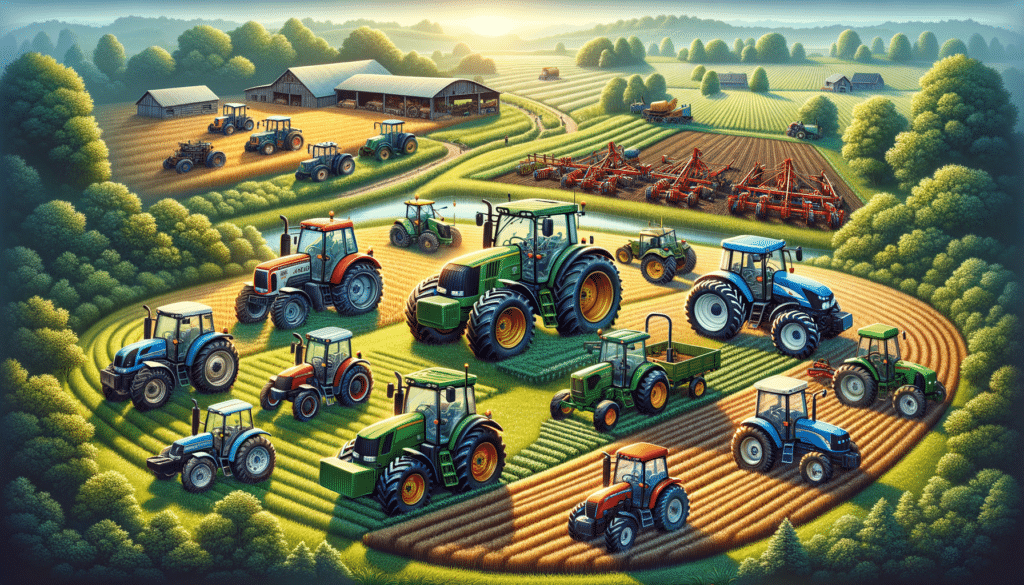Introduction to Small Tractors for Small Farms
Small tractors play a crucial role in the world of agriculture, particularly for small-scale farms. These versatile machines are designed to meet the unique needs of smaller farms, providing the power and efficiency required to manage various tasks. With the increasing emphasis on sustainable farming practices, small tractors have become indispensable tools for farmers looking to optimize their operations while minimizing environmental impact.
Benefits of Using Small Tractors
Small tractors offer a multitude of benefits that make them an attractive choice for small farm owners. Firstly, they are more cost-effective than their larger counterparts, making them accessible to farmers with limited budgets. Additionally, their compact size allows them to maneuver easily through tight spaces and around obstacles, which is particularly advantageous for farms with limited acreage.
Small tractors are also highly versatile, capable of performing a wide range of tasks such as plowing, tilling, planting, and hauling. This versatility reduces the need for multiple specialized machines, saving both space and money. Furthermore, many small tractors are designed with fuel efficiency in mind, reducing operational costs and environmental impact.
- Compact design for easy maneuverability
- Cost-effective for small-scale operations
- Versatile functionality for various farming tasks
- Fuel-efficient to lower operational costs
Key Features to Consider
When selecting a small tractor, it’s essential to consider the specific features that will best meet your farm’s needs. One critical factor is the horsepower of the tractor, which determines its ability to perform heavy-duty tasks. For small farms, a tractor with 20 to 50 horsepower is typically sufficient.
Another important feature is the type of transmission. Hydrostatic transmissions offer smooth operation and are ideal for tasks requiring frequent speed changes, while gear-driven transmissions are more suited for heavy-duty work. Additionally, consider the availability of attachments and implements, as these can significantly enhance the tractor’s versatility.
- Horsepower suitable for small farm tasks
- Transmission type: hydrostatic vs. gear-driven
- Availability of attachments and implements
Comparing Popular Models
Several small tractor models have gained popularity among small farm owners due to their reliability and performance. While specific brand names cannot be mentioned, it’s important to compare factors such as engine power, fuel efficiency, and ease of maintenance when evaluating different models.
Some models are renowned for their exceptional durability and low maintenance requirements, making them ideal for farmers who need a dependable machine that can withstand rigorous use. Others may be highly rated for their advanced features, such as ergonomic controls and enhanced safety mechanisms.
- Engine power and fuel efficiency
- Durability and maintenance requirements
- Advanced features for enhanced usability
Conclusion: Making the Right Choice
In conclusion, selecting the right small tractor for your farm involves careful consideration of various factors, including cost, functionality, and specific farm needs. By understanding the benefits and features of small tractors, as well as comparing popular models, farmers can make informed decisions that enhance their productivity and sustainability.
Investing in a small tractor that aligns with your farm’s requirements can lead to significant improvements in efficiency and yield. As the agricultural landscape continues to evolve, small tractors remain a vital component of successful and sustainable farming practices.





